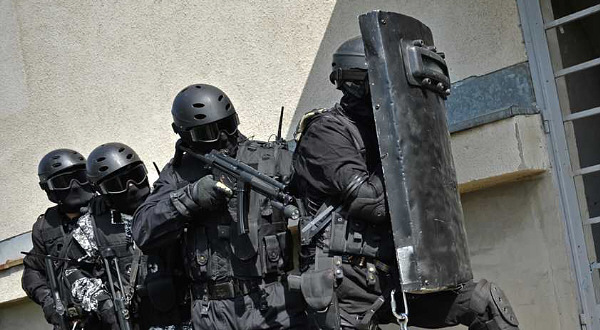

MI Police Officials Express Concern,
Skepticism Over "Red Flag" Enforcement

By NRA-ILA. Oct 9, 2023
Article Source
So-called "red flag laws" have become a recent favorite of gun control activists, who portray them as a way to keep firearms out of "dangerous hands." The laws empower judges to issue case-by-case firearm prohibition and confiscation orders, upon a petitioner's showing that the respondent of the order poses a danger to themselves or others. The concept has at times held superficial appeal even to those who might normally support Second Amendment rights. But it's constitutionality and efficacy wilt under close, critical scrutiny, which is why the NRA opposes the concept.
Last week, an unusually revealing article by Bridge Michigan, an independent news source from the Wolverine State, brought another critical voice to the debate: that of the police who will actually be tasked with executing the orders. Entitled "Michigan police agencies sweating enforcement of 'red flag' gun laws," it vividly underscores the difference between theory and practice when it comes to 'gun control'.
Among the officials quoted in the article is Robert Stevenson, executive director of the Michigan Association of Chiefs of Police. He said he supports the idea that people who are "not mentally balanced" should not have firearms, but he is concerned with the practicalities of how police will enforce Michigan's new red flag law, which takes effect next spring. Stevenson offered several scenarios in which the supposedly "lifesaving" law could itself pose lethal risks.
As he explained to Bridge Michigan:
What happens if the person with the order tries to hurt the officers? What if the person who was deemed suicidal becomes overwhelmed and still poses harm to themselves when their guns are being seized? What if the individual with an order has to be detained by force or even be killed, due to the threat they pose?
From the citizen's perspective, Stevenson said, it could be a case of: "We're trying to save somebody in the family. We went to the police to save them, and they killed them."
The legislator who spearheaded Michigan's red flag effort, Sen. Mallory McMorrow (D-Royal Oak), claimed to Bridge Michigan she "studied the laws in other states, such as California and Florida" and "found no instances of a gun being fired during a seizure of weapons."
Sen. McMorrow's research, however, was seriously flawed.
A simple Internet inquiry should have revealed to her that Gary J. Willis, a 61-year-old African American man, was killed by police in Anne Arundel, Md., as they attempted to retrieve his firearm under a red flag order shortly after 5:00 a.m. on Nov. 5, 2018. Willis's wife, Dolly, was also home at the time. Police claim that Willis became increasingly agitated as officers explained the requirements of the order to him and that he reached for the gun after he had voluntarily set it aside at their request. Willis died on the scene after being shot at least five times by police. A Baltimore Sun article quoted the local police chief as saying the execution of red flag orders involves, by definition, "a tense, dangerous situation," one he would prefer to be handled by SWAT teams.
'Gun control' advocates like to claim any intrusion on constitutional rights is justified, if it "could save just one life." Apparently, however, they don't hold themselves to that same standard when promoting policies that themselves pose lethal risks.
Also expressing skepticism of the red flag concept to Bridge Michigan was Matt Saxton, the executive director of the Michigan Sheriffs' Association. Sexton said his "organization was never asked to comment on conversations of how to enforce the new law." He described being "left in the dark, not sure what to strategize for and what to envision when [the new law] takes effect." It appeared to him that localities would be left to figure out the logistics of implementation on their own, perhaps in collaboration with each other. Sexton told Bridge Michigan "he doesn't believe that extreme risk protection [i.e., red flag] laws are the best laws that could be passed," but he hopes for the best.
No wonder that the most consistent experience states have when passing red flag laws is to later discover they are little known, little utilized, and don't live up to their billing as a game-changing way to prevent "gun violence."
A Duke University sociologist who studies red flag laws and their effects told PBS, "It's too small a pebble to make a ripple. … It's as if the law doesn't exist."
When a law is almost universally treated as if it doesn't exist, it may be because it should have never existed in the first place. Disuse, indeed, might be the best that could be hoped for when it comes to red flag laws.
![]()
























